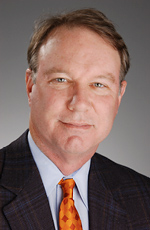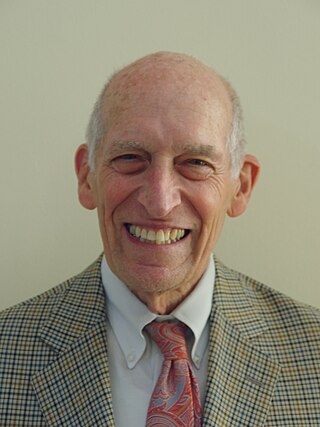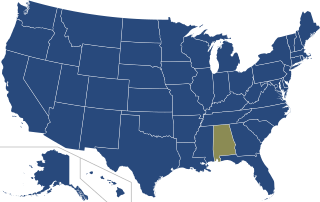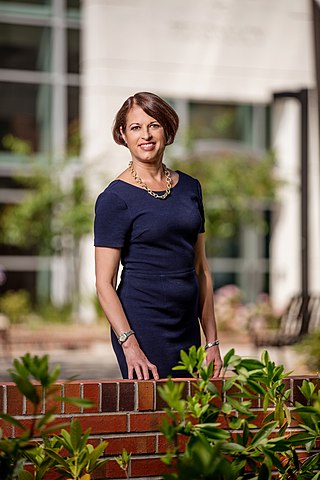
A pharmacist, also known as a chemist in Commonwealth English, is a healthcare professional who is knowledgeable about preparation, mechanism of action, clinical usage and legislation of medications in order to dispense them safely to the public and to provide consultancy services. A pharmacist also often serves as a primary care provider in the community and offers services, such as health screenings and immunizations.
Pharmacotherapy, also known as pharmacological therapy or drug therapy, is defined as medical treatment that utilizes one or more pharmaceutical drugs to improve ongoing symptoms, treat the underlying condition, or act as a prevention for other diseases (prophylaxis).

Massachusetts College of Pharmacy and Health Sciences (MCPHS) is a private university focused on health- and life-sciences education, with campuses in Boston, Massachusetts, Worcester, Massachusetts, and Manchester, New Hampshire, as well as online programs. The university provides traditional and accelerated programs of study focused on professional education in pharmacy and the health sciences.

The University of Kentucky College of Pharmacy is a college of pharmacy located in Lexington, Kentucky. In 2020, U.S. News & World Report recognized the UK College of Pharmacy as one of the nation's top ten pharmacy programs.

Clinical pharmacy is the branch of pharmacy in which clinical pharmacists provide direct patient care that optimizes the use of medication and promotes health, wellness, and disease prevention. Clinical pharmacists care for patients in all health care settings but the clinical pharmacy movement initially began inside hospitals and clinics. Clinical pharmacists often work in collaboration with physicians, physician assistants, nurse practitioners, and other healthcare professionals. Clinical pharmacists can enter into a formal collaborative practice agreement with another healthcare provider, generally one or more physicians, that allows pharmacists to prescribe medications and order laboratory tests.
Joseph T. DiPiro is professor and Associate Vice President of Health Sciences for Faculty Affairs at Virginia Commonwealth University From 2014 to 2022 he was Dean and Archie O. McCalley Chair, School of Pharmacy.

Dr. William E. Evans, Pharm.D. served as St. Jude Children’s Research Hospital’s fifth director and CEO from 2004 to 2014. From 1986 to 2002, he chaired the St. Jude Department of Pharmaceutical Sciences, and from 2002 to 2004 served as the hospital’s scientific director and executive vice president. He also currently holds the St. Jude Professorship and Endowed chair at the University of Tennessee College of Medicine and Pharmacy.
The American College of Clinical Pharmacology® (ACCP) is a national organization of clinical pharmacology healthcare professionals who seek to advance clinical pharmacology.
The Board of Pharmacy Specialties (BPS) was established in 1976 and is an independent division of the American Pharmacists Association that grants recognition within the United States to appropriate pharmacy practice specialities and establishes standards for certification of pharmacists in 14 specialities. The specialty examinations are accredited by National Commission for Certifying Agencies (NCCA), the accreditation body of Institute for Credentialing Excellence (ICE).

Leslie 'Les' Zachary Benet is an influential pharmaceutical scientist heading the UCSF's Benet Lab at the Department of Bioengineering and Therapeutic Sciences and recipient of the Remington Medal for distinguished service to American pharmacy.

A collaborative practice agreement (CPA) is a legal document in the United States that establishes a legal relationship between clinical pharmacists and collaborating physicians that allows for pharmacists to participate in collaborative drug therapy management (CDTM).

The Joint Commission of Pharmacy Practitioners (JCPP) is the largest professional delegation representing the interests of pharmacists within the United States. JCPP represents 13 professional associations in the field of pharmacy, developing consensus policy directives for the profession. It is well known for the 2014 development of "The Pharmacists’ Patient Care Process," which provides broad, consensus guidelines for how clinical pharmacists should practice.
Hartmut Derendorf was a German-American pharmacist and clinical pharmacologist, a distinguished emeritus professor of pharmaceutics at University of Florida. A significant figure in his field, Derendorf published over 20 papers each with over 100 citations.
Kathleen M. Giacomini is a professor of bioengineering and therapeutic sciences at the University of California, San Francisco. Her work focuses on how genetics affects the efficacy of drugs. She is also the co-director UCSF-Stanford Center of Excellence in Regulatory Sciences and Innovation for the department of Bioengineering at the University of California, San Francisco.
The Society of Infectious Diseases Pharmacists (SIDP) is a non-profit organization comprising pharmacists and other allied health professionals specializing in infectious diseases and antimicrobial stewardship. According to the Board of Pharmaceutical Specialties, clinical pharmacists specializing in infectious diseases are trained in microbiology and pharmacology to develop, implement, and monitor drug regimens. These regimens incorporate the pharmacodynamics and pharmacokinetics of antimicrobials for patients.

Julie Ann Johnson is an American clinical pharmacist and translational scientist. She currently serves as associate dean for clinical and translational research and holds the Dr. Samuel T. and Lois Felts Mercer Professorship of Medicine and Pharmacology at Ohio State University College of Medicine. She is also associate vice president for research at Ohio State.
Marie A. Chisholm-Burns is an educator, university administrator and pharmacist. As of 2024 she is the Executive Vice President and Provost of Oregon Health & Science University (OHSU). She is also the J.S. Reinschmidt Endowed Professor in the OHSU School of Medicine Department of Surgery.
Jill M. Kolesar is an American pharmacist, cancer researcher, and professor, currently serving as the dean and Jean M. Schmidt Chair in Drug Discovery at the University of Iowa College of Pharmacy. She specializes in precision oncology, drug development, and molecular pharmacology, with contributions to cancer therapy, particularly for rural and underserved populations.









